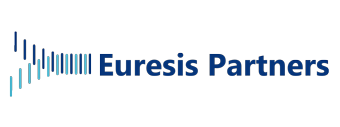Generating impactful evidence at all stages of a drug life cycle: an obligation for success
Generating evidence to meet the expectations of the people or entities that evaluate, prescribe or consume a drug is an obligation to optimize its value. This obligation allows us to optimize its development with regulators, its market access conditions with respect to payers, and its adoption by healthcare professionals and patients. Because this evidence generation process is addressing different stakeholders, it must involve the different components of a Pharma company: medical, commercial, market access, under the authority of the General Management.
The standard evidence generation process consists of asking a question, collecting data, analyzing the data, and making sense of it in order to define an operational action plan to generate the expected evidence. While this approach sounds simple to state, it is usually too slow, too expensive and unreliable. High quality evidence that meets the expectations of regulators, payers, clinicians and patients is rare.
Collecting data has long been slow and expensive because it also relies on conducting clinical trials. Data collection is undergoing a series of significant advances allowing us to hope to achieve precision medicine. New sources of data derived from digitized health databases, objects connected via the Internet or genomic data allow us to develop a more granular approach to the response to treatment. This multiplicity and diversity of available data sources can drastically reduce the need for clinical trials.
Analyzing data means first of all integrating these data of diverse origin into a common platform and being able to submit these data to new advanced analytics: this is now possible and extremely powerful.
We are therefore in possession of a hitherto unprecedented mass of data and a new and resolutely intelligent analysis capacity.
The possibilities of generating evidence should naturally be increased. However, this is not necessarily the case because two stages of the evidence generation process have not benefited from the same advances: the reliability of the evidence generation process comes from our ability to ask questions and to make sense of things.
Asking a question: let’s remember that evidence generation is based on gathering insights from those who are going to evaluate, prescribe or consume a drug. Gathering an insight means gathering the expression of a demand (from the evaluator, the prescriber, the consumer) that expresses a frustration or at least a dissatisfaction: it is this frustration that represent the real unmet need. The questions asked during the process of generating evidence most often focus on the qualities of the offer, omitting to know whether these qualities respond to the frustration of the evaluator, the prescriber or the consumer. Asking the right question(s), ie adopting an unnatural approach (asking about what the other person expects and not about what we are offering) is fundamental because it will affect the definition of the data to be collected. Asking good questions is difficult: not asking them to avoid this difficulty will become possible and probably desirable if we exploit to the maximum the extent of the available data and the new technologies for analyzing these data.
Making sense of the results of the data analysis, especially analyses integrating data of a complex nature or analyses using advanced methods, is the last step in the process, preceding the writing of an action plan, which is only its translation. Making sense is always a complex operation: apart from the fact that it implies the intervention of different competences that do not always have the opportunity to dialogue with each other, apart from the fact that it implies the addition of multiple expertise, it implies first and foremost a cold, rational and unbiased approach to the material that is presented. In the vast majority of cases, however, this meaning is given by the people who are most directly involved with the offer. Matching meaning to the offer is the most natural thing for these people: at the end, the offer dictates the meaning. Ensuring that this last step, which consists in giving meaning to a complex analysis, is carried out adequately requires some precautions that are rarely implemented.
Euresis Partners has developed an evidence generation methodology that goes from the insight to the drafting of an operational plan.
This methodology addresses each step of the evidence generation process:
- The question
- The different sources of data
- New analysis technologies
- The conditions of restitution of the data analysis
- The process leading to the prioritization of evidence
- The operational plan

